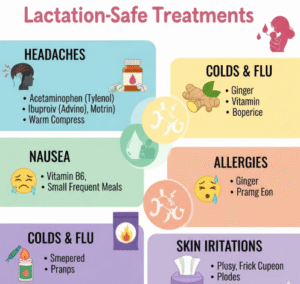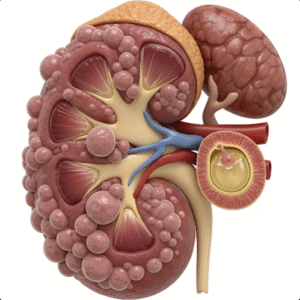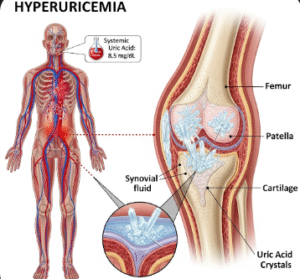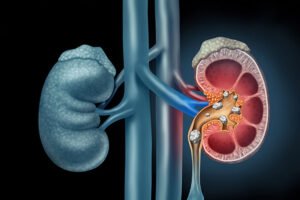Overview
Acute Flaccid Myelitis (AFM) is a rare but serious neurological condition that affects the spinal cord, causing sudden muscle weakness and paralysis. It most commonly affects young children and can progress rapidly, sometimes leading to permanent disability. Early recognition and supportive care are essential to improve outcomes.
What is Acute Flaccid Myelitis?
AFM is a type of neurological illness characterized by inflammation in the gray matter of the spinal cord, resulting in muscle weakness and loss of reflexes. It shares clinical similarities with polio and other viral infections but is distinct in its cause and behavior.
AFM gained public attention in recent years due to seasonal outbreaks, especially in the United States, and its potential link with enteroviruses, particularly enterovirus D68 (EV-D68).
Symptoms
AFM symptoms typically begin suddenly and may include:
- Sudden weakness in arms or legs
- Facial droop or weakness
- Difficulty moving the eyes
- Slurred speech
- Difficulty swallowing
- Neck or back pain
- Loss of muscle tone and reflexes
- In severe cases: Respiratory failure requiring mechanical ventilation
Symptoms often follow a mild viral illness like a cold or fever.
Causes
The exact cause of AFM is not always identified, but several potential triggers include:
- Viral infections, especially:
- Enterovirus D68 (EV-D68)
- Enterovirus A71
- West Nile virus
- Adenoviruses
- Environmental toxins (rarely)
- Autoimmune reactions that target the spinal cord
Research continues to explore the link between viruses and the onset of AFM.
Risk Factors
AFM is still being studied, but certain risk factors have been observed:
- Children, especially under 10 years old
- Recent viral illness (cold, respiratory infection)
- Seasonal pattern: More common in late summer and early fall
- Geographic clusters during outbreaks
There is no strong evidence of genetic or lifestyle risk factors at this time.
Complications
AFM can lead to serious, sometimes life-threatening complications:
- Paralysis of limbs or respiratory muscles
- Loss of motor function
- Swallowing and speech difficulties
- Respiratory failure requiring a ventilator
- Permanent muscle weakness or disability
- Emotional and developmental challenges in children
Recovery varies — some patients regain full strength, while others have lasting impairments.
Prevention
Currently, there is no specific way to prevent AFM, but general practices can reduce viral exposure:
- Frequent handwashing with soap and water
- Avoiding close contact with sick individuals
- Disinfecting surfaces and shared objects
- Covering coughs and sneezes
- Staying home when sick
- Mosquito control to reduce West Nile virus risk
Vaccines for AFM-specific viruses like EV-D68 are not yet available.
Treatment Options Korea
1. Hospital Admission and Supportive Care
- Immediate hospitalization, often in ICU or neurology ward
- Airway support or mechanical ventilation if respiratory muscles are affected
- Close monitoring of neurological and cardiorespiratory status
2. Immunotherapy (Experimental/Supportive)
- Intravenous immunoglobulin (IVIG) – commonly used to modulate immune response
- High-dose corticosteroids – used in some cases, though evidence is limited
- Plasma exchange (plasmapheresis) – may be tried in severe or refractory cases
3. Antiviral Therapy (Investigational)
- No proven antiviral treatment
- May be considered on a case-by-case basis, especially in suspected enterovirus cases (e.g., EV-D68)
4. Rehabilitation Therapy
- Intensive physical and occupational therapy to preserve and restore function
- Early intervention is critical for better recovery outcomes
- Pediatric rehab programs are widely available in tertiary Korean hospitals
5. Long-term Follow-Up
- Ongoing neurologic evaluation for motor deficits, scoliosis, or limb deformities
- Orthotic devices, mobility aids, or surgical consultations as needed
- Support for speech, feeding, or respiratory therapy if cranial nerves are involved
6. Surveillance and Reporting
- AFM is a notifiable disease in many countries; Korean CDC monitors cases
- Public health follow-up for viral outbreaks (especially enteroviruses in children)













